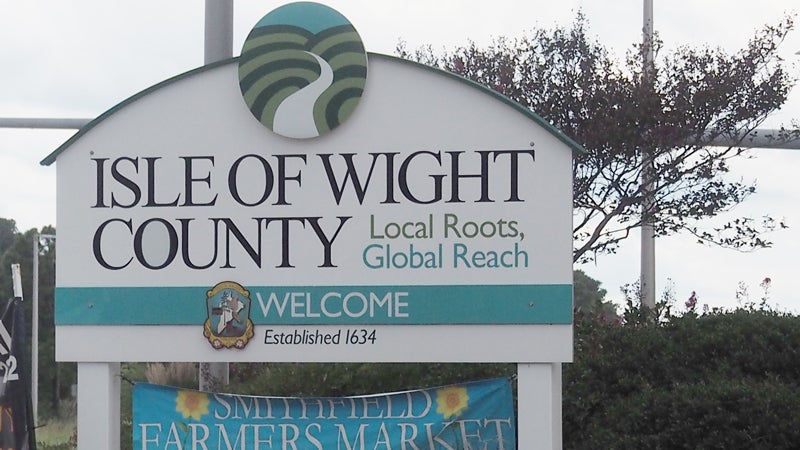Windsor mounts opposition
Published 6:25 pm Tuesday, September 18, 2018
Town to urge EDA not to transfer its property
By Frederic Lee
Staff writer
WINDSOR —The Windsor Town Council plans to draft a letter to the Isle of Wight Economic Development Authority in opposition to a proposed juvenile detention center on county-owned land along Route 258.
The letter, discussed at the September Council meeting, is aimed at the Economic Development Authority, by which a vote against the Phase III location could affect the project.
If the EDA voted against transferring the property, the county would have to determine how to address that, said Isle of Wight Assistant County Administrator Don Robertson.
The EDA owns the property in Phase III of the intermodal park. {mprestriction ids=”1,2,3,4,5,6″}
The county would have to convey the property to the state for the project to continue, and if the EDA votes against the property transfer, there are ways to work around that, but it’s up to the Board of Supervisors to make that decision, said Robertson.
The Windsor Town Council argues that the project is financially unfeasible and unrealistic due to the prevalence of wetlands on the land being eyed for the project — and which is located in Phase III of the county’s intermodal park.
And although the detention center is expected to generate 240 new jobs, some Council members were concerned that the project would do nothing to bring new business to Windsor.
Alternatively, other Council members in favor of the location argue that providing the land with water and sewer lines would spur further business development there.
“I don’t think that will happen,” said Flemming in a phone interview. “The concept of anything being built there is the problem. If (the Army Corps of Engineers) approved it, even that would come with mitigation credits.”
Mitigation credits can be purchased in order for an entity to build over or deconstruct a wetlands-delineated area. Since wetlands are protected by environmental regulations, purchasing these credits “mitigates” the environmental repercussions of their destruction, providing funds for wetlands to be created elsewhere.
“Phase I or Phase II would be a better location for (the detention center),” Mayor Rita Richardson said during a phone interview. Both parcels of land are located within Windsor’s town limits, and Phase II has an 82-acre, permit-ready site, according to the county’s website.
Other areas that have been suggested lie off Buckhorn Drive. Windsor town officials and residents said that site is unsuitable due to the curviness of the road, among other factors.
Richardson was the first on the Council to express opposition to the detention center’s location at the September meeting, and other council members quickly joined in.
“It doesn’t make financial sense,” said Flemming.
“There will be no returns from the project,” said Vice Mayor Durwood V. Scott.
Scott additionally expressed grievances about the county’s perceived lack of forthrightness regarding its plans for the detention center.
“We must make this as transparent as possible for the taxpayers,” he said.
While rumors swirled that the cost of outfitting Phase III with a sewer system alone would cost $3 million, Isle of Wight County officials estimate the cost of outfitting the parcel with both water and sewer at $1.45 million.
Isle of Wight County is still in the process of assessing the Phase III property in order to evaluate the cost of implementing the detention center there.
Council member Tony Ambrose expressed that “(council members) don’t have a say at all” when it comes to the final decision regarding the detention center.
Opposition to the center’s location, however, was not unanimous among the Council: “We’ve already written a letter of support,” said council member Macon Edwards. “Don’t we need to find out exactly what they’re going to do before we write a (new) letter?” he asked.
The 60-bed juvenile detention center would house youth ages 14-20, with a focus on academic and vocational training as well as counseling. Isle of Wight has agreed to contribute $500,000 to the project for utilities and 20 acres of land. {/mprestriction}





